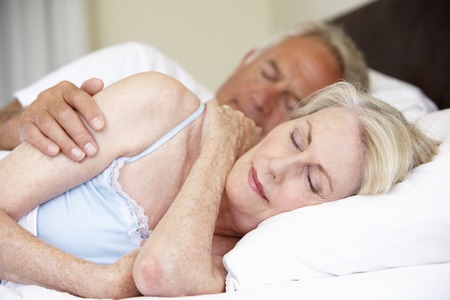Exercise and Stress
 Not the best solution for stress.
Not the best solution for stress.In 1967, I knew nothing about exercise and stress. Like any good friend, I helped my best friend cope with a break-up by helping her down a half-gallon of Rocky Road ice cream! Unfortunately, she only felt worse about this ritual because of her ever-increasing weight problem.
As my lifestyle changed to include healthier eating habits and exercise, I set aside ice cream as a coping mechanism.
Exercise and Happiness
What I didn’t know at that time was that exercise reduces stress hormones. It also causes our bodies to produce endorphins – the feel-good chemicals that act as natural painkillers, improve sleep, enhance feelings of pleasure, satisfaction, and a sense of euphoria.
Regular aerobic exercise decreases overall tension and elevates mood – having an anti-anxiety effect.
Exercise and Stress -- what you need to know
According to the Anxiety and Depression Association of America, the number of people reporting physical and emotional symptoms due to stress is increasing every year.
Stress affects how you think, feel, and behave. It can have a tremendous effect on your physical and mental well-being. While there are many well-known ways to manage stress, exercise is the one most recommended by health care professionals.
The physical benefits of exercise are indisputable. Stress affects the brain. Because of the neural connections, the rest of the body is impacted as well. Besides improving mental fitness, it reduces stress.
Research conducted at Princeton University found that “physical activity reorganizes the brain so that its response to stress is reduced and anxiety is less likely to interfere with normal brain function." Running produced a large increase in the number of new neurons in the region of the brain that regulates anxiety.
 Swimming is a great aerobic exercise!
Swimming is a great aerobic exercise!A study published in the British Journal of Sports Medicine found that aerobic exercise appears to be the best form of exercise to reduce stress -- and beneficial results in stress levels occurred with aerobic exercise after 12 weeks, three times per week, for at least 20 minutes per session.
Research indicates that the more aerobically fit an individual is, the better they manage stress. The strong correlation between exercise and stress reduction cannot be overlooked.
The Importance of Reducing Stress -- what you don't know can kill you
Mental and emotional stress affects your learning, perception, and decision making. The emotional state involves things such as pain, or moods (anxiety or depression), and decreased motivation.
It can lead to heart disease, reduce sex drive, affect memory, cause digestive problems, and impair judgment. Stress has been linked to autoimmune diseases like rheumatoid arthritis, irritable bowel syndrome, and ulcers.
Stress can destroy your quality of life. Because the effects are cumulative it is important to incorporate stress-reducing measures now. I strongly suggest that you read the article, Ways to Manage Stress. Refuse to let it manage you!
More Topics That May Interest You
Some of the advertisers on my website are affiliate partners, which means that I may receive a small commission from any sale, at no extra cost to you.
For example, the Amazon affiliate advertising program is designed to provide a means for sites to earn fees by advertising and linking to amazon.com.
Your tips and purchases help to support this free-information website.
Thank you.
The content of this website is for informational purposes only and not intended to be taken as a replacement for professional medical advice, care, diagnosis or treatment by a doctor, dietitian, physical therapist, nutritionist or fitness instructor.
DO NOT BEGIN ANY EXERCISE PROGRAM WITHOUT CHECKING WITH YOUR DOCTOR FOR UNDERLYING CONDITIONS THAT MAY PREVENT YOU FROM DOING SO.








